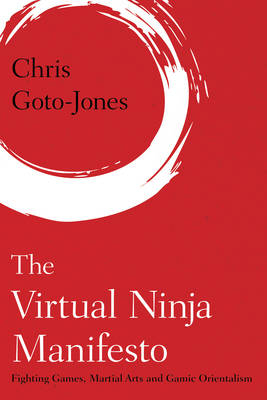
The Virtual Ninja Manifesto
Fighting Games, Martial Arts and Gamic Orientalism
Seiten
2016
Rowman & Littlefield International (Verlag)
978-1-78348-982-4 (ISBN)
Rowman & Littlefield International (Verlag)
978-1-78348-982-4 (ISBN)
Draws on the traditions of the martial arts to ask whether playing violent videogames actually transform gamers into better people.
Navigating between society's moral panics about the influence of violent videogames and philosophical texts about self-cultivation in the martial arts, The Virtual Ninja Manifesto asks whether the figure of the 'virtual ninja' can emerge as an aspirational figure in the twenty-first century.
Engaging with the literature around embodied cognition, Zen philosophy and techno-Orientalism it argues that virtual martial arts can be reconstructed as vehicles for moral cultivation and self-transformation. It argues that the kind of training required to master videogames approximates the kind of training described in Zen literature on the martial arts. Arguing that shift from the actual dōjō to a digital dōjō represents only a change in the technological means of practice, it offers a new manifesto for gamers to signify their gaming practice. Moving beyond perennial debates about the role of violence in videogames and the manipulation of moral choices in gamic environments it explores the possibility that games promote and assess spiritual development.
Navigating between society's moral panics about the influence of violent videogames and philosophical texts about self-cultivation in the martial arts, The Virtual Ninja Manifesto asks whether the figure of the 'virtual ninja' can emerge as an aspirational figure in the twenty-first century.
Engaging with the literature around embodied cognition, Zen philosophy and techno-Orientalism it argues that virtual martial arts can be reconstructed as vehicles for moral cultivation and self-transformation. It argues that the kind of training required to master videogames approximates the kind of training described in Zen literature on the martial arts. Arguing that shift from the actual dōjō to a digital dōjō represents only a change in the technological means of practice, it offers a new manifesto for gamers to signify their gaming practice. Moving beyond perennial debates about the role of violence in videogames and the manipulation of moral choices in gamic environments it explores the possibility that games promote and assess spiritual development.
Chris Goto-Jones is Professor of Philosophy and Dean of Humanities at the University of Victoria. He is also a Professorial Research Fellow of SOAS, University of London.
Introduction: (Video)games and violence/1. Violence and Self-Cultivation: Embodied Orientalism/2. Digital Embodiment and the Dōjō/3. The Virtual Ninja Manifesto/4. From Techno-Orientalism to Gamic Orientalism/Conclusion: Videogames and Emancipation/Bibliography/Index
| Erscheinungsdatum | 23.09.2016 |
|---|---|
| Verlagsort | London |
| Sprache | englisch |
| Maße | 142 x 218 mm |
| Gewicht | 227 g |
| Themenwelt | Sachbuch/Ratgeber ► Sport ► Kampfsport / Selbstverteidigung |
| Geisteswissenschaften ► Philosophie ► Östliche Philosophie | |
| ISBN-10 | 1-78348-982-0 / 1783489820 |
| ISBN-13 | 978-1-78348-982-4 / 9781783489824 |
| Zustand | Neuware |
| Haben Sie eine Frage zum Produkt? |
Mehr entdecken
aus dem Bereich
aus dem Bereich
der Umgang mit Adrenalin; mentale Stärke, Motivation und …
Buch | Hardcover (2024)
Leopold Stocker (Verlag)
CHF 37,90
Techniken, Prinzipien, Konzeption
Buch | Softcover (2023)
Meyer & Meyer (Verlag)
CHF 46,90


